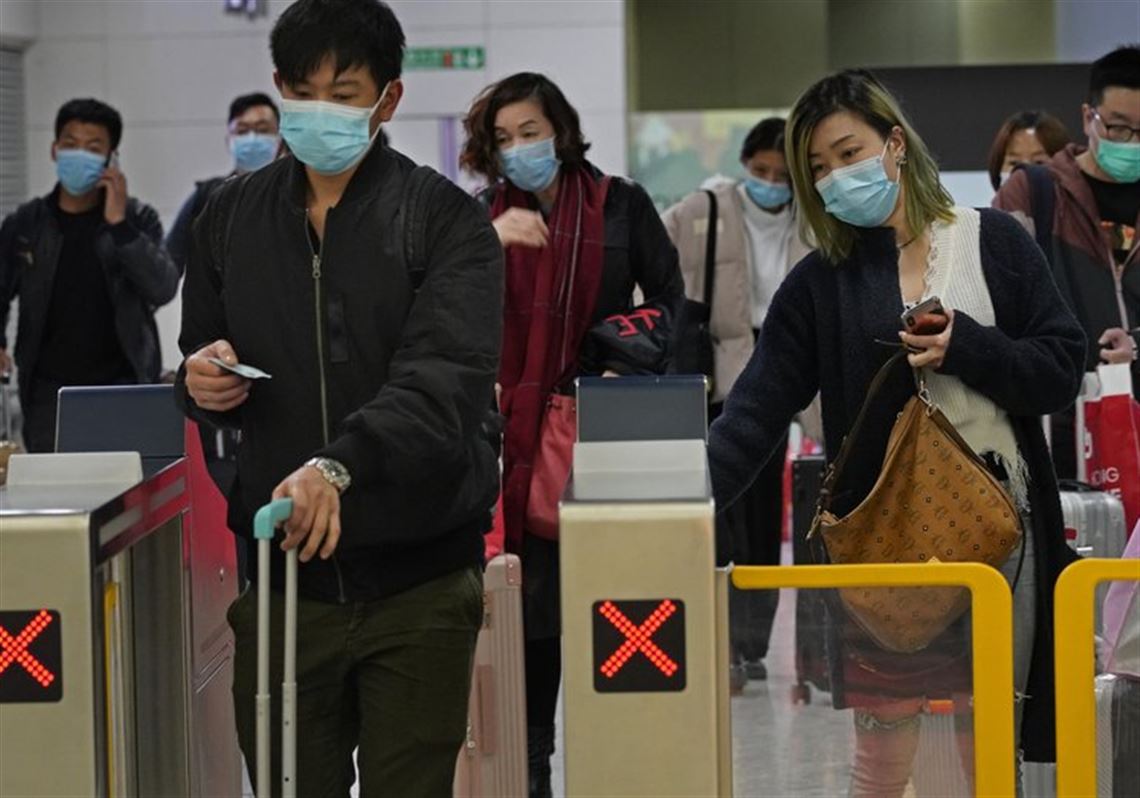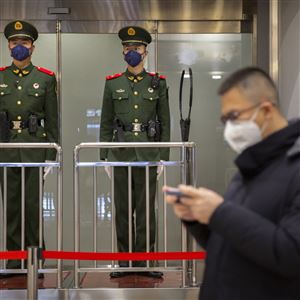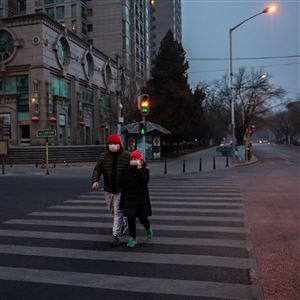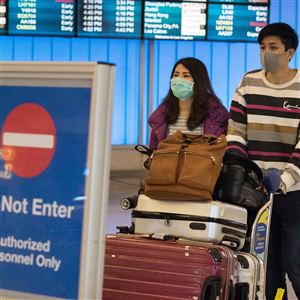Despite a rapidly rising number of cases and deaths in Wuhan, China — a sister city with Pittsburgh — from a newly identified coronavirus that appears to have jumped from snakes to humans there, and now five cases total confirmed in the United States, local, state and federal health officials say there is very little concern for an outbreak in a region like Pittsburgh.
The federal Centers for Disease Control and Prevention said in an update on its website Monday that while “CDC considers this is a very serious public health threat, based on current information, the immediate health risk from [the coronavirus] to the general American public is considered low at this time.
“Nevertheless, CDC is taking proactive preparedness precautions.”
Concern about the virus — dubbed the “2019 novel coronavirus,” or “2019-nCoV” in CDC shorthand — rose over the weekend. The Chinese health minister said he believed a person infected with the virus could spread the disease before experiencing symptoms.
Dr. Nancy Messonnier, director of the CDC’s national center for immunization and respiratory diseases, told reporters Monday there is not yet any clear evidence that people can infect others before they are symptomatic.
Still, Pittsburgh-area officials are on the watch.
“This is an evolving situation, and the airport is prepared to respond if circumstances change,” said Bob Kerlik, spokesman for the Pittsburgh International Airport, which does not have any direct flights from Wuhan and has not had to screen passengers as a result.
The Pittsburgh area has thousands of Chinese immigrants, including nearly 5,000 university students from China at the University of Pittsburgh and Carnegie Mellon University alone.
Neither campus has reported any suspected cases of the coronavirus. Officials with both schools say they are closely monitoring the situation, taking precautions and staying in touch with agencies including the Allegheny County Health Department.
At Carnegie Mellon, an alert page set up on the school’s website noted, “Out of an abundance of caution, any student with fever and cough who has been to Wuhan, China, within the last 14 days should report to the [university health services] immediately.”
“If you are a faculty or staff member [and believe you have symptoms], you should contact your primary care provider for guidance,” it added.
On Monday evening, Pitt issued a message to its campus similar to CMU’s, spelling out resources and screening.
It added: “Should you begin to experience any of these symptoms and have recently traveled to or near affected areas or been exposed to others who have traveled to or near affected areas, contact Student Health Service, MyHealth@Work or your health care provider immediately.”
The city of Pittsburgh and the University of Pittsburgh historically have a special relationship with Wuhan. Since 1982, Pittsburgh has been one of Wuhan’s 20 sister cities, and Wuhan University has been the partner institution for Pitt’s Confucius Institute, according to the university’s website.
Last summer, a program at Pitt operating out of the institute that put scholars from China in area K-12 schools and colleges to help teach language was suspended for the upcoming year after State Department required changes to the program, including more oversight of its instructors.
Pitt’s institute, located in Posvar Hall and funded jointly by the university and the Chinese government, remains open, officials said at the time. No one answered a call Monday to the institute.
China accounts for about 43% of international students on Pennsylvania college and university campuses, a share higher than any other leading host state, except for Ohio.
Meanwhile, Pittsburgh-area Chinese residents set up a fundraiser last week to raise money for masks and other medical supplies for Wuhan on the GoFundMe.com website. As of Monday afternoon, they had raised nearly $23,000 toward their $50,000 goal.
Dr. Kristen Mertz, an Allegheny Health Department epidemiologist, said the department has gotten “quite a few calls this past week from providers and the public” seeking information about the virus.
Recommendations from the health department, she said, remain the same as any viral outbreak: “If you develop respiratory symptoms, stay home and call your provider.”
Exactly how many people are now in Pennsylvania who could have potentially been infected during a visit to Wuhan is not clear.
“That information is protected by the Disease Control and Prevention Law, which does not allow us to give out that type of information,” said Nate Wardle, a state Department of Health spokesman on Monday via email.
Dr. Mertz said the state and local health departments will not even confirm that there is someone who is being monitored as a suspected case of coronavirus.
Brittany Lauffer, another state Department of Health spokeswoman, said in an email: “As for additional monitoring, we are working to ensure that those who were in the Wuhan area are healthy.
“Anyone who does not feel well should remember to cover their cough and sneeze, clean surfaces and wash their hands frequently, and to contain their illness by staying home. Washing your hands and taking other steps to protect yourself from illnesses such as the flu, the common cold and coronavirus are essential.
“It is safe for individuals who do not show symptoms or feel sick to go about their normal routine.”
The news that China believed that the virus could be transmitted before a person was symptomatic concerned disease experts around the globe and helped lead to a heightened concern — even affecting the financial markets as China cut off the Wuhan region from the rest of the world to try to contain the virus.
U.S. stocks Monday afternoon closed with sharp losses as investors worried about the potential economic impact of the outbreak. The declines in the U.S. followed a sell-off in markets in Europe and Japan.
Some of that concern could be mitigated if experts around the world knew more about the virus.
Dr. Amesh Adalja, a Pittsburgh-based infectious disease physician and senior scholar at the Johns Hopkins Center for Health Security, said confirming that someone could be infectious without symptoms would be hard without further research of the case that China based that conclusion on.
“We know there are certain viruses that can transmit before the incubation period is over — it is thought that influenza might be infectious a day before symptoms appear,” he said. “But we have not seen that happen with any coronavirus before.”
The novel coronavirus is one of seven known coronaviruses that cause respiratory illness, including severe acute respiratory syndrome (SARS) and Middle East respiratory syndrome (MERS). There is no known vaccine for coronaviruses.
Part of the struggle for health experts globally is that the novel coronavirus is so new they are not even sure how long the incubation period is — which is the time after a person has been infected but before they begin showing symptoms and are, presumably, infectious.
Chinese officials have pegged the period with a broad range — from a few days to as long as 14 days.
Exactly how long is still not known, Dr. Adalja said, because “we still have data gaps” about how the virus functions.
Sean D. Hamill: shamill@post-gazette.com or 412-263-2579 or Twitter: @SeanDHamill Bill Schackner contributed.
First Published: January 28, 2020, 11:28 a.m.





















